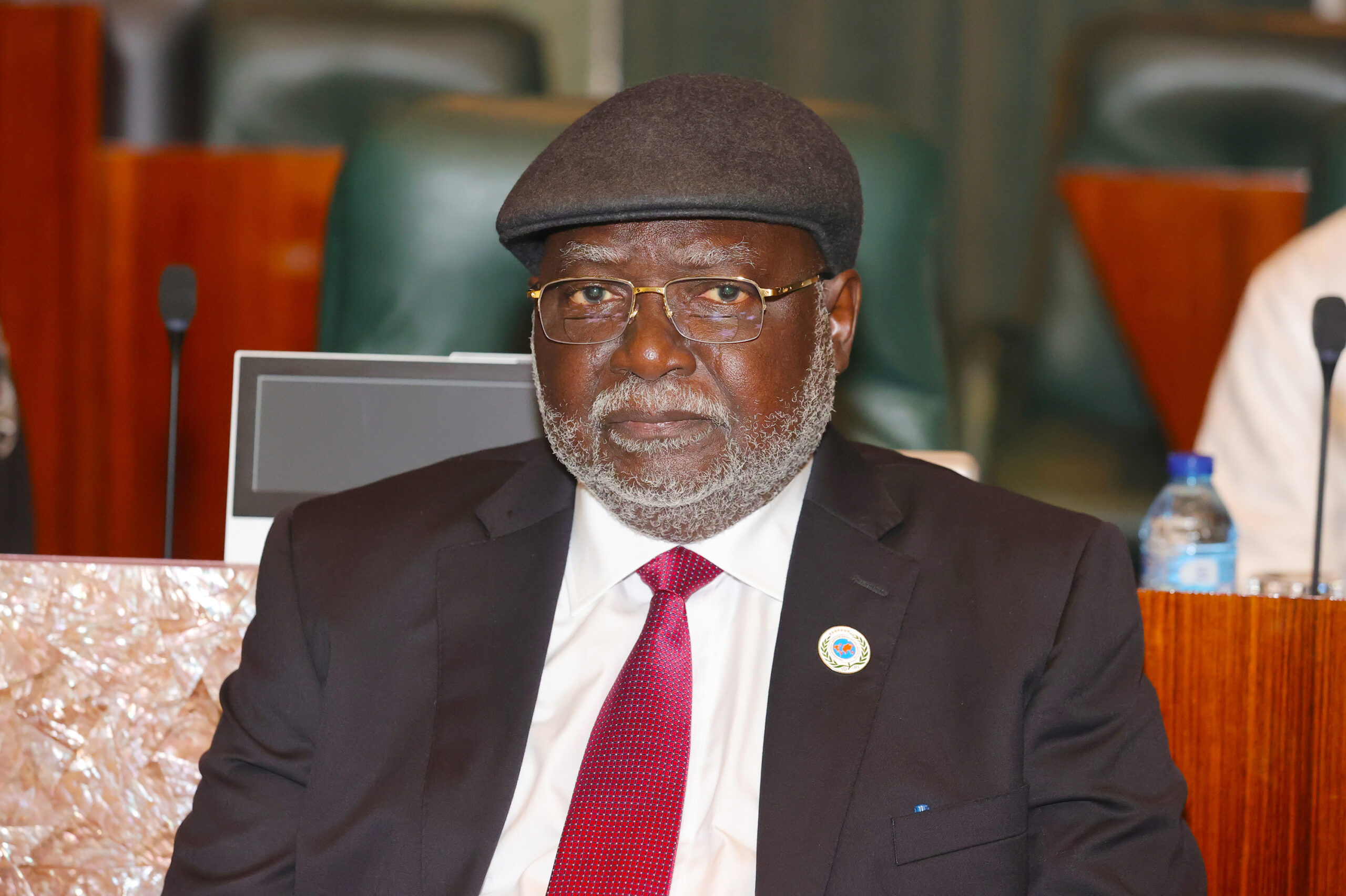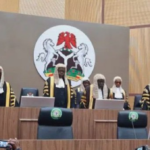Although the recent public protest by justices of the Supreme Court seems to have placed the judiciary on trial, observers believe the move is a game-changer for that arm of government.
In an unprecedented letter to the immediate past Chief Justice of Nigeria (CJN), Justice Ibrahim Tanko Muhammad, the 14 justices had highlighted some salient issues bordering on the welfare, logistics and reform of the country’s judiciary.
- Street sweepers protest non-payment of 3-month salaries in Gombe
- Disquiet in Lagos PDP over choice of deputy governorship candidate
Signatories to the letter, Justices Olukayode Ariwoola, Musa Dattijo Mohammed, Justice Kudirat Motonmori O. Kekere-Ekun, John Inyang Okoro, Justice Chima Centus Nweze, Amina Adamu Augie, Uwani Musa Abba-Aji, Mohammed Lawal Garba, Helen Moronkeji Ogunwumiju, Abdu Aboki, Ibrahim Mohammed Musa Saulawa, Adamu Jauro, Tijjani Abubakar, and Emmanuel Akomaye Agim, helped bring the issues to the front-burner.
The justices, in the letter titled ‘The State of Affairs in the Supreme Court of Nigeria by Justices of the Court’, asked the CJN to act before it is too late on the challenges of justices’ accommodation, vehicles, electricity tariff, supply of diesel, internet services to their residences and chambers, and epileptic electricity supply to the court.
Although the now resigned CJN had in his reply denied allegations of wrong-doing in the administration of the apex court, his exit has paved the way for the appointment of Justice Olukayode Ariwoola as the acting CJN.
Judges’ public protests now global
The justices’ public outcry, although very rare from the adjudicators of justice who are usually conservative, their action manifests the changing dynamic energy in judicial activism around the world.
In June 2022, judges in Tunisia embarked on a month-long streets protest over President Kais Saied’s sacking of 57 judges. The strike, which involved all the courts, administrative, financial and judicial institutions, was used to press for the judiciary’s independence.
In January 2018, some justices of the Indian Supreme Court also revolted against the country’s chief justice, Dipak Misra, and launched a public attack, through press conferences, against his alleged arbitrary and selective way of assigning some important cases to benches headed by junior Supreme Court justices.
Nigerian judiciary needs improved welfare, reforms – Judges
The issue of welfare and reforms in the judiciary has remained a major issue in Nigeria. The working conditions and remuneration of judicial officers in the country are worse than what is available elsewhere.
This is even as the judiciary continues to battle other challenges such as poor funding, political interference, corruption, delays due to inadequate manpower, technology, unwieldy structure, low quality of judicial officers due to a flawed recruitment process, poor welfare for judges, absence of a fair and transparent system, political interference and lack of independence.
The President of the Court of Appeal, Justice Monica Dongban-Mensem, on September 13, called for a review of the salary of judicial officers after the Certain Political, Public and Judicial Office Holders (Salaries and Allowances, etc.) (Amendment) Act 2008, which came into force on February 1, 2007, to enable them to make sound judicial pronouncements.
“According to the Act, the Honourable Chief Justice of Nigeria’s annual basic salary is N3,353,972.50 or N279,497.71 monthly, while other Justices of the Supreme Court and the President of the Court of Appeal earn N2,477,110 as basic annual salary or N206,425.83 monthly,” she said.
A former CJN, Justice Walter Onnoghen, had also on June 21, bemoaned the poor salaries and emoluments of justices of the Supreme Court, which have not been reviewed since 2008 forcing them to suffer in silence.
He maintained that the Supreme Court justices are being overworked due to several appeals getting to the apex court thereby causing congestion.
“The judiciary is not Nigeria’s problem but bad leadership. There must be a rethink on issues affecting the judiciary because, without a strong legal profession, you cannot talk of the rule of law,” he said.
The situation has also caused a Senior Advocate of Nigeria, Sebastine Hon on April 29 to file an action before the National Industrial Court demanding an increment in the entitlement of judicial officers in Nigeria.
He joined as parties in the suit, the National Assembly, the Revenue Mobilisation and Fiscal Commission (RMAFC), the Attorney General of the Federation and Minister of Justice, and the National Judicial Council (NJC).
Hon contends that under sections 4(1), (2), and 8(1) to(4) of the Nigerian Constitution with Section 6(1) (d) and parts A and B of the Fiscal Schedule to the RMAFC, it is unconstitutional for the revenue commission to refuse, fail, neglect or ignore to upwardly review the salaries and allowances of judicial officers.
While bemoaning the N3,363,972.50 annual salaries paid to the Chief Justice of Nigeria and the poor salaries of other judicial officers, he demanded the reviews in the following order: Chief Justice of Nigeria – N12m a month and justices of the Supreme Court – N11m a month; President of Court of Appeal – N11m and justices of the court – N10m.
Other reviews are Chief Judge of the Federal High Court – N10m and judges of the court – N8m; President of the National Industrial Court – N10m and judges of the court – N9m; Chief Judge of state high courts – N8m and judges of the courts – N7m.
There are positives in the justices’ public protest – Lawyers
Speaking on the development, Adegboyega Awomolo (SAN) said it was because the justices cannot talk that they are being sidelined, oppressed, and marginalised by the other arms of government like the executive and the legislature.
“The National Assembly members have increased their salaries more than three times since 2008, and they have no time to attend to the judicial officers’; it is unkind, unfair, highly oppressive and intimidating,” he said.
Similarly, Hameed Ajibola Jimoh Esq said the “action would likely have positive effects on all courts across the nation as it would make the heads of courts sit up.”

 Join Daily Trust WhatsApp Community For Quick Access To News and Happenings Around You.
Join Daily Trust WhatsApp Community For Quick Access To News and Happenings Around You.


